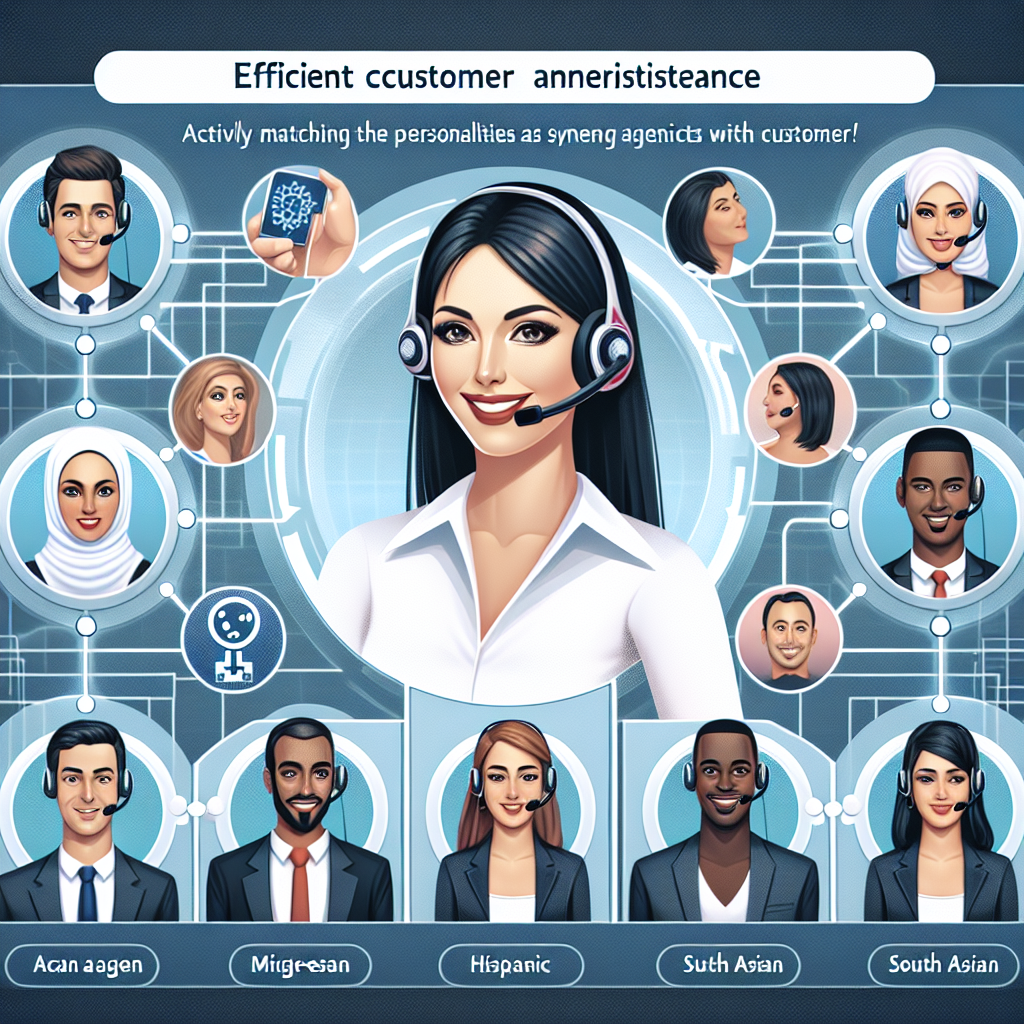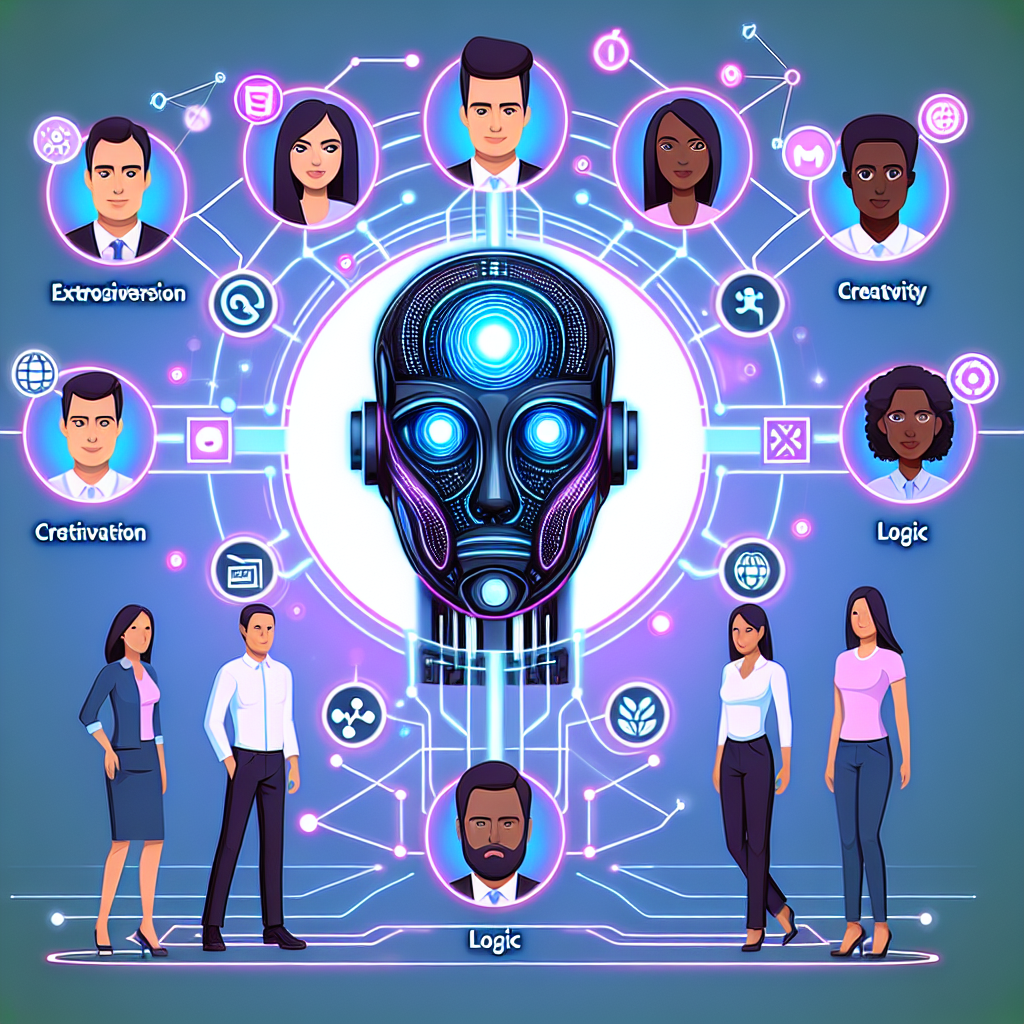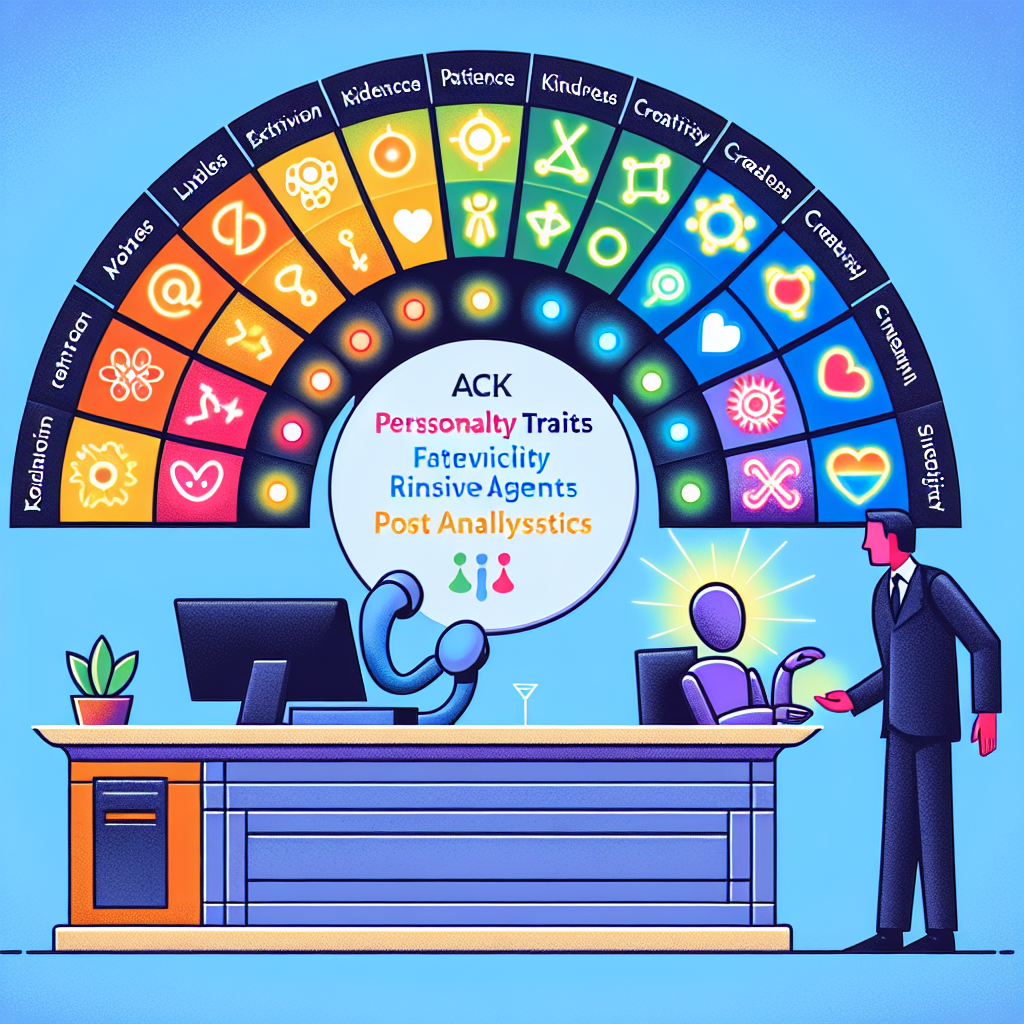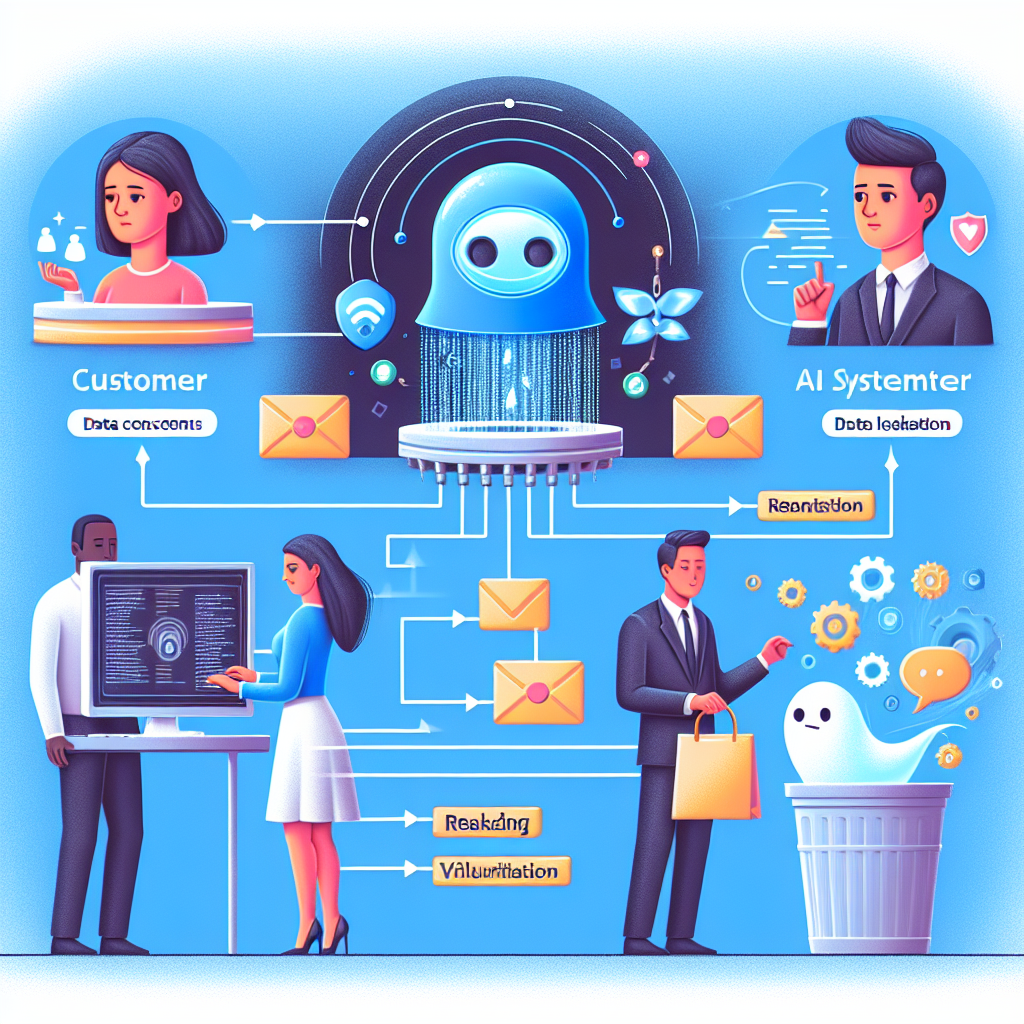
In an age where customer experience reigns supreme, companies are leveraging advanced technologies to personalize their services, ensuring every interaction is effective and fulfilling. Among these technological advances, Artificial Intelligence (AI) has emerged as a powerful tool in optimizing the process of agent-customer matching. By utilizing AI, companies can identify customers’ personality traits, which subsequently, can dramatically improve the quality of customer interactions.

A key method to achieve this goal is through Personality Insights, an AI service that examines written text to discern personality characteristics. When combined with the agent-customer matching process, Personality Insights can provide a deep understanding of a customer's needs, preferences, and values. This, in turn, permits a far more strategic and personalized approach to assigning agents to customers based on the compatibility of their personalities.
Furthermore, AI models can assess an immense volume of data to identify patterns in personality traits and characteristics. This rich source of data provides an unparalleled level of insight into customer behavior and preferences, which can enhance the dynamic of agent-customer interactions. The result? Improved customer satisfaction, increased loyalty, and enhanced agent productivity.
Ultimately, the introduction of AI in optimizing agent-customer matching based on personality traits has already begun reshaping customer interactions and the field of customer service as a whole. As the technology evolves, we can anticipate a future where personalization isn't just a benefit—it's an expectation.
It's clear to see that companies utilizing Personality Insights empowered by AI will stay ahead in the competitive landscape, offering a unique, personalized, and delightful customer experience at every interaction.
Ever wondered how your call gets directed to a specific customer service agent? The answer lies in the compelling science of artificial intelligence (AI) and its role in personality-based agent-customer matching. It's an intricate process, grounded on solid psychological theories and data analytics.
The process starts with personality assessment. Companies often utilise well-regarded psychometric tools and theories such as the Myers-Briggs Type Indicator or the Big Five Personality Test. These tools assign quantifiable metrics to personality traits, allowing for easier comparison and analysis. An agent's communication style, compassion level, problem-solving abilities, and more are assessed and noted.
Once the agent's personality is evaluated, the same process is applied to customers, often in real-time. This is typically achieved through analysis of the customer's historical data, prior interactions with the brand, and self-reported personality ripostes.
Finally, the amalgamation of both sets of data is used for agent-customer matching. Sophisticated AI algorithms like Natural Language Understanding (NLU) and Machine Learning models (ML) analyze, understand, and predict the optimal match based on cognate personality traits. The goal? To maximize customer satisfaction and boost overall customer experience.
However, the matching process isn't wholly automated. Human involvement is necessary to validate AI predictions, make adjustments based on nuances and unpredictable behaviors, and constantly train the AI for improved performance.
In conclusion, the science behind personality matching is a perfect blend of psychology and data science, performed by AI and confirmed by humans. An optimized match can drastically enhance the customer interaction experience, leading to happier, more loyal customers.
Bringing agent-customer matching to a whole new level, AI-driven companies are leveraging deep learning to analyze a customer's personality traits and subsequently match them to an agent with a complementary personality. This innovative approach makes for more personalized, efficient, and successful client interactions. Here are some key real-world examples.

Israeli startup, Cogito, has pioneered a unique AI-powered software that offers real-time guidance to customer support agents based on the emotions, tones, and speech patterns it detects in the customer's voice. The tool guides the human agent, allowing them to respond dynamically and empathetically to the customer. Reports show that it has significantly improved customer service success rates and experience.
In another case study, online lender, Monevo, used a deep-learning AI model to predict the likelihood of a borrower defaulting and to connect customers with suitable lenders. They factored in the personality traits of the borrower using AI, optimizing success rates. This resulted in the company reporting a 16% increase in loan conversions.
Criterion HCM, a human capital management solution, recently integrated an AI software to match customers with the most compatible representative. The integration led to quicker issue resolution and a 15% uptick in customer satisfaction rates.
These case studies bolster the fact that utilizing AI to optimize personality-based agent-customer matching is not only possible but also highly fruitful. As technology continues to improve, we should expect to see more companies integrating AI into their client service systems to improve matching accuracy and efficiency.
Learning from these pioneering enterprises, companies must harness the potential of AI in improving customer service - a competitive strategy that promotes both client satisfaction and business growth.
In recent years, the confluence of advanced Artificial Intelligence (AI) and psychological understanding has led to an exciting innovation: agent-customer matching based on personality traits.This dynamic system harnesses AI's predictive capabilities, mapping customers with contact center agents that best align with their behavioral tendencies. Let's elucidate the benefits that this matching system brings to various business elements.
Firstly, this cutting-edge technique invariably boosts customer satisfaction. When customers interact with agents who understand their communication style and preferences, they feel more heard and valued. This enhanced personalized experience leads to a significant improvement in customer satisfaction. One study by Journal of Big Data affirmed that a well-matched personality interaction can enhance customers' overall satisfaction by 30%.
Secondly, agent performance goes on an upward trajectory with this AI-enabled agent-customer matching. By pairing agents and customers based on behavioral compatibility, agents are better equipped to address customer queries effectively. This leads to fewer escalations, shorter call durations, and increased first call resolution rate instantly boosting agent productivity.
Furthermore, personality matching opens up opportunities for upselling and customer retention. When customers are comfortable and satisfied, they're more likely to be receptive to additional products or services being offered. According to a report by Bain & Company, a 5% increase in customer retention can increase a company's profitability by 75% and the probability of converting an existing customer into a repeat purchaser is 60-70%.
In conclusion, the introduction of AI to optimize agent-customer matching is a bona fide game-changer. It offers businesses a revolutionary way to uplift customer satisfaction, enhance agent productivity and open up new avenues for upselling and customer retention, creating a proactive, profitable, and customer-centric service environment.
With the adoption of AI in optimizing agent-customer matching based on personality traits, several challenges and ethical considerations arise.

Foremost among these concerns is securing personal data. The framework required to establish accurate personality matching inherently demands an extensive accumulation of personal customer data. Research has shown that AI can draw personality traits from various kinds of data - such as text, voice modulation, and purchase histories - which introduces a potential invasion of customer privacy. Organizations must be transparent about the data collection process and obtain informed consent from customers as part of their ethical responsibility.
Additionally, there is a potential risk posed by biased algorithms. AI models are trained on existing data, and any inherent bias in this information can lead the model to develop preferences, possibly leading to unfair agent-customer matches. Companies must then ensure the proper scrutiny of the AI training data to eradicate any form of discrimination.
Above all, there is the issue of accountability. If an AI matches an agent and a customer, leading to an unfavorable interaction, who is to be held accountable? The responsibility for any adverse outcomes must be clearly defined before deploying AI-based personality matching.
In conclusion, while AI-based personality matching holds great potential for improving customer service interactions, it also presents a series of ethical dilemmas and challenges that need to be addressed. Balancing the benefits against the ethical risks requires careful consideration and scrutiny from both businesses and regulatory bodies to maintain trust and uphold ethical standards in AI implementations.
As artificial intelligence continues to evolve, the future of AI in customer service is optimistic and promising, with a specific emphasis on advancements in personality matching algorithms. Experts predict that we're soon to experience advanced personalized services, fitting consumers with agents who match their personality type more accurately than ever.
Canvassing current research and development trends, significant strides can be witnessed in machine learning and natural language processing (NLP), enabling AI to understand the sentiment behind consumer interactions. The key goal is to improve customer-agent compatibility on the basis of personality traits. This method of aligning personalities constructs more fine-tuned experiences, often leading to higher customer satisfaction.
Naturally, such technology is still in nascent stages, necessitating rigorous research and large-scale testing. At present, these AI systems are proficient in determining general traits, such as whether a person is extroverted or introverted, detail-oriented or big-picture. But, ongoing research is indicating high possibilities of AI successfully identifying subtler traits such as preferences for rule-abiding service or a more flexible approach.
Impressively, evolving technologies aim to match customers not just based on textual interactions, but also on non-verbal cues. Utilizing voice-tech AI can allow for identification of a person’s mood and emotional state, providing the ability to pair them with an agent best equipped to handle their situation.
As these advancements continue, there are expectations for a significant boost in customer retention rates, sales, and overall customer satisfaction. The future of AI in customer service, particularly with agent-customer matching based on personality traits, is undeniably poised for an exciting journey of evolution and improvement.
Start your free trial for My AI Front Desk today, it takes minutes to setup!








